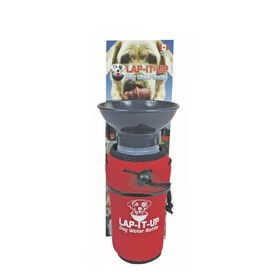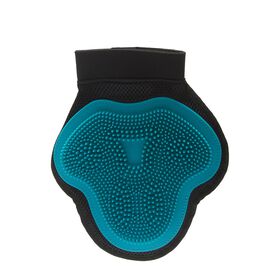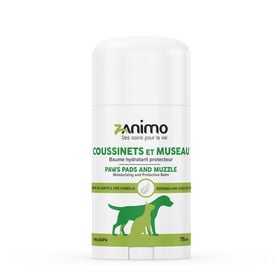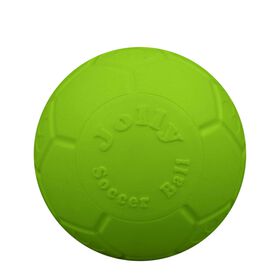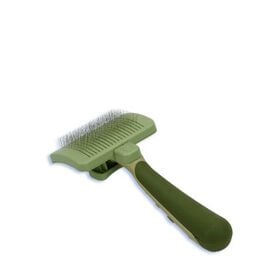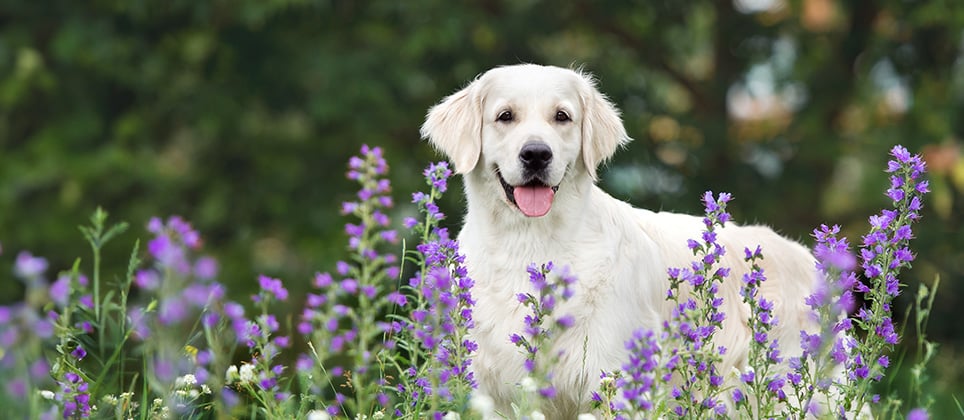
Spring prep unleashed: 10 tips for your pet's best season yet
Published February 28, 2024.

Mondou Team
Pet well-being specialist
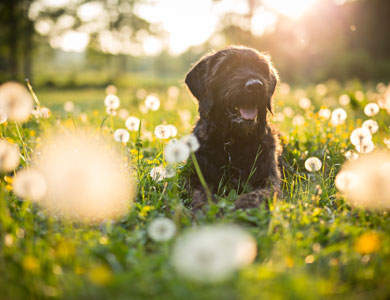
Spring is a beautiful season to enjoy with your furry friend. However, it also brings specific challenges that must be considered to ensure your pet's well-being. From protecting them against fleas and ticks to avoiding potential hazards, making this season as pleasant and safe as possible for your companion is essential. So, let's explore some tips to help you keep your pet happy and healthy during this season of renewal!
Tips for a worry-free spring
Protect them from fleas and ticks: the warmer months mean the return of fleas and ticks. Opt for pest control products adapted to your pet's size and age. Elanco products are vet-approved and an excellent option for effectively protecting your pets.
Safe walks: when the weather gets nicer, increase your walks gradually to prevent fatigue and injury. Always inspect the path and use a sturdy leash to avoid potential hazards.
Control their allergies: spring can be difficult for pets prone to seasonal allergies. Look out for signs such as excessive licking, sneezing or itching. Consult your vet to identify allergens and discuss solutions, from dietary changes to appropriate medication.
Also read: Allergies in cats and dogs: everything you need to know
Keep them hydrated: hotter days can lead to dehydration. Ensure your pets always have access to fresh water, especially after physical activity. Plan hydration breaks during walks.
Updating identification: take advantage of the change of season to review your pets' identification collars. Ensure the information is current, including your phone number, in case they get lost or wander off.
Grooming and paw care: facilitate spring moulting by increasing brushing frequency and using appropriate tools. In addition, regular inspection and trimming of claws is essential to avoid discomfort. You can also apply a moisturizing cream to the pads to prevent irritation from rough surfaces.
Cleaning after outings: take the time to gently clean your pets' paws after each outing. It will remove potentially irritating or toxic residues, reducing the risk of skin allergies and accidental ingestion.
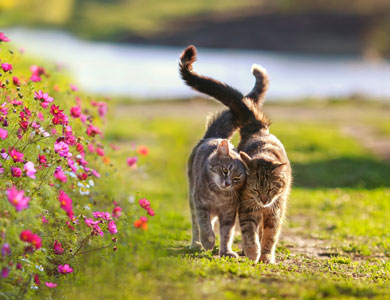
Set up a shaded area: create a shaded area in the garden where your pets can rest out of direct sunlight to avoid heatstroke.
Review their diet: physical activity levels may increase during spring. Consult your veterinarian to adjust food portions accordingly. Make sure their diet meets their specific needs, promoting optimal health.
Plan outdoor activities: spring offers new opportunities to engage and entertain your pets with interactive outdoor games. Organize playful training sessions, search games, or strolls in various environments to strengthen your bond with your furry friend.
5 potential hazards
Spring arrives with all its changes, and taking specific measures to ensure your companion's well-being during this season is crucial.
Poisonous plants in full bloom: during spring, numerous plants bloom, but some can be toxic to animals. Some of the most common poisonous plants are azaleas, lilies, and lilies of the valley. If ingested, these plants can cause skin irritation, gastrointestinal problems, and even severe poisoning. Therefore, knowing which plants are present in your environment and keeping them far from your pets is crucial. In doubt, consult your veterinarian.
Also read: Plants that are toxic for your pets
Preventing water-borne diseases: avoid walking near stagnant water sources to reduce the risk of water-borne diseases. Keep your pet healthy by providing clean water at home and avoiding uncontrolled outdoor water sources.
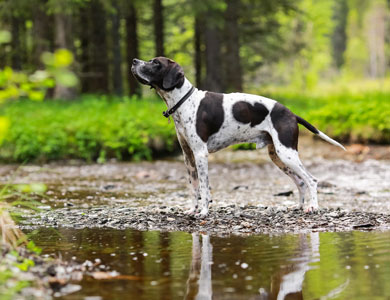
Garden chemicals: chemicals like fertilizers, pesticides, and herbicides used in gardening can harm pets. It's essential to keep your pets away from the treated area during application, carefully follow product instructions, and ensure the treated area is secure. If your pet comes into contact with any chemicals, rinse them thoroughly and seek immediate veterinary attention.
Opening windows and doors: during pleasant weather, it's common for people to open windows and doors to let fresh air into their homes. However, be cautious if you have pets, especially cats, known for their exceptional escape skills. You must ensure your pets are safely secured and can't run away.
Insect and wildlife nests: as spring arrives, insects and wildlife begin constructing their nests. Some pets may be curious and try to investigate these nests, leading to either bites or dangerous interactions with the wildlife. Therefore, it is essential to keep a close eye on your pets when they are outside and avoid any areas where you suspect a nest may be located.
Ensure a smooth transition for your pet into the new season by practising these ten tips and being aware of potential hazards. Cherish these special moments with your loyal companion!


